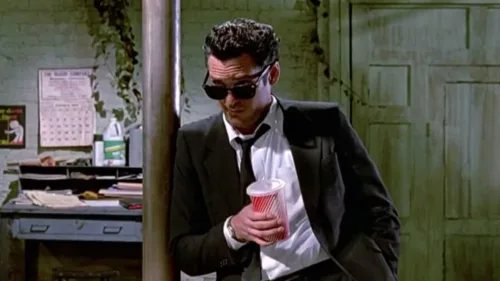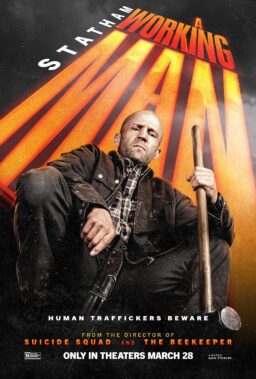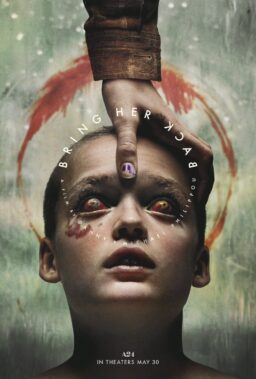NEW YORK — I started too late in the film to get an exact count, but by
my rough estimate, Sylvester Stallone says less than 200 words in
“Rambo III.” If we can believe the reports of his salary on the
picture, that works out to about $100,000 a word, an amount that will
increase as revenues come in from the box office, video sales,
television rights and T-shirts.
The amazing thing is not that Stallone is paid so much. It is that
he says so little. Sylvester Stallone in person is a fountain of words,
a thesaurus, a monologue – and his vocabulary is offbeat and colorful. He seems to be making up new grammatical fancies as he goes along. He speaks of his celebrated divorce from Brigitte Nielsen as “unprecedented in the annals of Hollywood gossip.” Explains his current publicity activities as “my purging.” Describes his image as “a monosyllabic slice of chuck roast.” Observes that “war is the most vile of all agents of man.”
All of this was before noon on a recent Sunday, after a rough-cut
of “Rambo III” had been unveiled at a public sneak preview in
Manhattan. The cut was so rough that you could still see the marks of
the editors’ grease pencils, marking the ends of shots. But the
audience – mostly young and male – roared through the picture anyway, chanting “Rambo!” and applauding his grim and apocalyptic speeches. Tri-Star Pictures, which is releasing the film on May 25, has reason to hope the screening was prophetic; it needs to gross around $60 million before the film goes into profit.
There is every possibility, however, that “Rambo III” will gross more than $60 million, or $100 million, or who knows how many millions. Stallone is the only movie star in recent history to portray two series heroes–Rocky and Rambo–simultaneously. Studies like a series hero because his films are more or less pre-sold; the last one acts as a commercial for the next one. In Stallone’s case, by alternating Rocky and Rambo, he can be back on a regular basis with a five-letter R-hero without seeming to repeat himself.
When I pointed this out to Stallone (who has most likely thought of it for himself), he paused for a second, and then said “Three. You have Rocky and Rambo, and then you have Cobra, who is a sort of semi-third-one, because `Cobra’ was more successful in foreign markets than the last two Rockys. My idea on that one was, in Hollywood movies like ‘Friday the 13th,’ everybody screams, but nobody ever calls a cop. I’m gonna put a cop into the middle of that kind of situation, and see how it works.”
“Cobra,” in case you missed it, starred Stallone in the trail of a mass killer. “We seem to be glorifying mass murderers these days,” he said. “Manson is on Geraldo Riviera, and I get chastised by the press for not explaining the motices of the killer in my movie. Well, there are no motives. They just kill. And the only way to eradicate them is to find a cop who is a radical eradicator. Power goes to power. To find a thief, hire a thief.”
In “Rambo III,” by contrast, Rambo does have a motive. As the film opens, he is discovered peacefully at work with some monks in Thailand, helpiong to build their temple. When his old comrade Colonel Trautman (Richard Crenna) discovers him there, and comes to ask him to join a dangerous mission into Soviet-controlled Afghanistan, Rambu demurs: “My war is over.” But when Trautman is captured and tortured by the evil Colonel Zaysen (Mark de Jonge), Rambo can remain a pacifist no longer, and he agrees to go to Afghanistan to rescue his friend (tumultuous cheers from the audience, who realize that if he refused, they’d be stuck in the middle of a movie about monks).
In an ever-so-subtle genuflection to the Russians, Zaysen is portrayed as by far the worst of the Russian commanders in the war zone, and he runs his fortress as a private show–presumeably without the blessing of liberals in the Korbachav regime. Rambo joins the local freedom fighter and assaults the fortress with tanks, horses, machine guns, rockets, grenades, helicopters and his bare hands, in the most expensive action sequences ever filmed–and he does most of his own stunts, too.
“I made this picture at such a low ebb of my own emotional fortunes,:” he explained, “that I didn’t care of I lived, or died.”
But if you were killed, I said, the investors and their insurance company would lose all of their millions, which would presumeably represent a low ebb in their fortunes.
“There was an ambulance standing by at all times,” Stallone said. “In any of those shots where I’m running toward the camera and the explosions are going off behind me, if the camera panned another two feet, you’d see the ambulance.”
We were having this conversation during a lull in a schedule of television interviews Stallone had planned to do. Half an hour earlier, he had walked into the room set up for the interviews, and immediately looked unhappy. The room was too warm. The lights would onlyt get hotter as the day went on. Stallone withdrew, consulted with the Tri-Star people, and they set off in search of a larger, cooler room.
“Sorry about my tantrum,” he said a few minutes later, sitting down with a glass of mineral water.
The room’s too hot, it’s too hot, I said.
“It was hot enough just to start with,” he said. “Wait until I started lying! If the elements aren’t right, I can’t think right.”
I reflected that Stallone had photographed much of “Rambo III” in a desert at 130 degrees–but then again, to be sure, he hadn’t said much.
“If you’re gonna do an interview in New York,” he said, “why not on a balcony overlooking the city? Why in a hotel room? I went to Vegas for a premiere, and there again–a third floor room. Why not on the floor, with all the lights?” He laughed. “They should hook me up to a polygraph. Sly–how did you like working with Menahem Golan on `Over the Top’? Oh, I liked it fine. Lie, lie, lie.”
That’s the disarming thing about Stallone. Despite the millions of words written about him, despite the fact that in his actkion pictures he plays a parody of the original Rocky Balboa and the original John Rambo, in person he entertains himself by deflating the very image he is paid to maintain. What nobody knows about him is that a comedian is hiding inside. If Jos Piscopo continues to pump iron, Sly should try stand-up.
“This is the most real of the Rambo series since the first one,” he was explaining, somehow seeming to create the illusion that there was more than one in between. “The same will be true of `Rocky V,’ which I will make next, and where Rocky will end up right where he began, on the streets. The idea in both pictures is to expand and illuminate my idiosyncracies. There’s not a lot left to do in the area of character development.. That was summed up in the line `To win a war,you have to become one.’ Rambo is not a leader, not a strategist. He is a fighter.
I”m always taken aback by the way the character is misperceived. He is not a violent character per se. He is constantly questioning his own integrity–and the futility of war. Rambo is never blistering for action–not for war, per se. When he kills in this movie, it’s for reasons like rescuing a helpless urchin from an aggressive sadist.”
After the movie was over, I said, I asked a kid what he thought of it. He said is was a good movie–but it was unrealistic.
Stallone smiled. “If you had four people like Rambo,” he said, “you wouldn’t need the Star Wars project. But he does it only out of loyalty to his friend, and also to purge himself, to an extent. He did it their way. Now he’s in a little Catholic passion play, to purge himself.”
That’s an interesting turn of phrase you used a moment ago, I said: To expand and illuminate my idiosyncracies. A lot of people who knew you only as Rambo or Rocky would be surprised to hear you talk like that.
“I’m always taken aback by the way my character is mis-perceived,” he said. “Actually, I’m a raving semanticist. I babble on and on.The act of communication lets out my cynical and satirical side. I can’t do it any other way. I love non-sequiturs. A line like, There are no bones in ice cream. I love a line like that. In the first `Rocky,’ I never shut up. I was a babbling street corner philosopher, preconceiving the world in single-digits.
“But as the Rockys began to flourish, poeople grew less and less interested in philosophy. They came for action. They were waiting for their fix at the end of the movie. If I time came in the script where I got the chance to locute, you could hear the people in front of their VCRs: Fast-forward this mother! My obligatory motivation scenes–they all split. I’ve learned not to piontificate. I let the other characters do my talking for me. Instead of saying, I was once a piece of driftwood, and I carved myself , I let Colonel Trautman say that about me.
“I’m trying to segue out of that pure action in my next few films, and go to something more like 148 Hours’.”
What will you next film be?
“It’s called `The Executioner.’ It will be directed by William Friedkin. It’s based on 140 books. It’s an amalgam of three characters I’ve played. It has to be, unless I do it in Kabuki makeup. The Executioner is the star of a lot of best-selling paperback novels, but we’l give him a sidekick, an innocent, who is brought along on the adventure,. sort of representing the audience.”
Friedkin is the director who invented the modern chase scene in “The French Connection” and further refined it in his chase up the wrong way of an expressway in “To Live and Die in L.A.” I said I would be interested to see what he did with the amalgam of three Stallone characters.
“I told him, Billy, you really have something. You were the father of all these pictures with `The French Connection.’ It hasn’t been surpassed even today. But what I want Friedkin for is not the violence, but his feel for the situation, the way he uses closeups to tell a story. I’ve been in so many films where the violence is so over-dramatic there are hardly any people around. It gets lonely up there sometimes, dealing with inanimate objects. To pass the time, all you can do is caress your rifle.”
Which perhaps brings us to Stallone’s recent marital bust-up.
“It does amuse me, the publicity, when it gets into very stupid areas of my inner life,” Stallone said. “My recent marriage and divorce was unprecedented in the annals of Hollywood gossip. Even in China, they read about it. There’s nobody in the world who doesn’t know what the alimony settlement was. And then I read that I’m out on a date, and somebody’s trying to eat my shoes off at Spago. And that I’m goiung to have a one-on-one motorcycle showdown with Schwarzenegger at Malibu. I gather that I left with attorney’s office and all I had left was two pains of Calvin Kleins and one pauir of ban-roll socks.
“This movie, and all of this publicity, is my purging. I thought I had a fairly well-established persona, some Rambo and a little Rocky, and now I’m being perceived as a monosyllabioc slice of chuck roast. All I can say is, I married her for all the right reasons. The first moment I saw her, I thought she was the most wonderful femme fatale. Warm, clever…if I ever came across someone else who was that well-rounded, I would marry her again. I don’t want to be innoculated against the germ of love.”
I mentioned the first time I had interviewed Stallone, before “Rocky” came out, when he was on the brink of all the things that have happened since.
“And it has all happened so fast,” he said. “Looking back at the last ten years is like looking through a jar of Vaseline. Now I have a responsibility not only to myself, but to my two children. It’s not a matter of money. It’s a question of setting some goals. Sometimes I feel like I’m not a privately-held company anymore. I’m publicly-held. That’s why i did all of those stunts myself, including that crazy game on horseback. It had to be me. There was an authenticity there that cut through all the bull. So what if I died? At least I was really living.”











